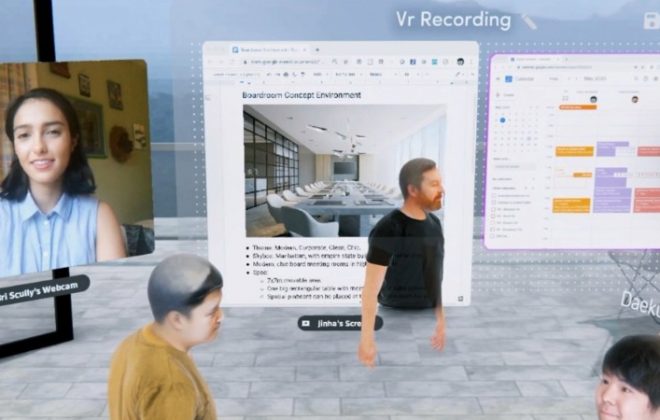CCaaS RFP Template for 2025: Next Generation Contact Center
Are you ready to take your Customer Experience (CX) to the next level in 2024? Then you need to know about Contact Center as a Service (CCaaS) and the latest features and functions available in the marketplace today. CCaaS solutions are revolutionizing the way businesses handle customer interactions by providing cloud-based contact center functionalities that can be continuously developed and enabled for your agents who can sit anywhere in the world. But with so many options out there, how do you choose the right one? The key lies in crafting a well-structured Request for Proposal (RFP).
Download a copy of our CCaaS RFP Template here: CCaaS RFP Template
Why a Well-Structured RFP is Crucial
A well-crafted RFP can be an excellent roadmap to finding the perfect CCaaS solution. It sets the stage for vendors to understand the needs of your business, your customer’s CX journey, and allows you to evaluate their offerings effectively. A thorough RFP ensures you get a solution that meets your business requirements, integrates seamlessly with your existing systems, and complies with all necessary regulations.
Key Components of a CCaaS RFP
Crafting an RFP isn’t just about listing your demands. It’s about clearly articulating your business goals, technical needs, and expectations. Here are the key components you should include:
Business Requirements
Your business requirements are the foundation of your RFP. Selected respondents need to know specifics about your current state and how your customers want to interface with your business. This section should detail your company’s needs, your brand, the problems you’re trying to solve, detail about your existing and target customers, and your goals for implementing a CCaaS solution.
Technical Requirements
Next, you need to outline the technical specifications. What kind of technology infrastructure do you have? What are your requirements for uptime, reliability, and performance? This section ensures the solution can support your technical needs.
Integration Capabilities
A CCaaS solution should work seamlessly with your existing systems. Specify the integrations you need, such as CRM systems, ERP solutions, or other essential business applications.
Security and Compliance
In today’s world, security and compliance can’t be overlooked. Detail your security requirements, including data encryption, user authentication, and regulatory compliance standards relevant to your industry.
Vendor Support and SLAs
Support and service level agreements (SLAs) are critical for ongoing success. Define your expectations for vendor support, including response times, support availability, and escalation procedures.
Cost Structure
Finally, outline your budget and ask for a detailed cost structure. This should include upfront costs, ongoing expenses, and any potential additional charges.
Product Roadmap
The CCaaS marketplace is changing very rapidly as suppliers invest heavily in their platforms. This section will enable bidders to detail their technology roadmap. Be certain to push for target dates so that you can determine the reality of their roadmap and their prioritization track.
Detailed Breakdown of Business Requirements
User Needs and Use Cases
Start by describing who will use the CCaaS solution and how. Outline specific use cases, such as handling customer inquiries, managing support tickets, or conducting outbound sales calls. This helps vendors understand your daily operations and tailor their proposals accordingly.
Customer Experience Goals
What kind of customer experience are you aiming for? Do you want to reduce wait times, improve first-call resolution, or offer personalized service? Are you looking to lower costs by using AI for certain customer inquiries?
Be clear about your goals to ensure the solution aligns with your customer service strategy. As noted earlier, understanding your current and desired customer journey is an important factor. Contact us to have a conversation about customer journey mapping and its importance in planning for a CCaaS RFP process.
In-Depth Look at Technical Requirements
Platform Reliability
Reliability is crucial for any contact center. Specify your requirements for uptime and availability. Ask vendors to provide details on their infrastructure, redundancy measures, and disaster recovery plans.
Scalability
Your business needs might grow, so your CCaaS solution should be able to scale accordingly. Detail your scalability requirements, including how easily you can add new users, integrate new communication channels, or expand to new locations. If you need assistant with global network connectivity for your office, check out our Wide Area Network RFP Template.
Customization Options
Every business is unique, and you may need a solution that can be customized to fit your specific needs. Ask about customization options, including user interface adjustments, workflow modifications, and custom reporting capabilities.
UCaaS Capabilities
Some of the leading CCaaS suppliers also have VoIP phone system solutions, aka UCaaS. CCaaS platforms that also offer UCaaS are sometimes referred to as MultiCaaS platforms. Our team has extensive expertise in designing and deploying most of the major UCaaS platforms, as well as in integrating them into existing or new Audio Visual deployments.
Gamification
Gamification in the contact center involves applying game-design elements and principles in a non-game context to motivate and engage employees. By introducing elements like points, badges, leaderboards, and challenges, contact centers can enhance agent performance, boost morale, and improve customer service. This approach not only makes the work environment more dynamic and enjoyable but also drives key performance metrics by fostering healthy competition and rewarding excellence. If you are not using gamification today, its certainly something to delve into to drive both CX and employee satisfaction.
Evaluating Integration Capabilities
CRM Integration
For many businesses, integration with a CRM system is vital. Whether you use Salesforce, HubSpot, or another CRM, ensure the CCaaS solution can seamlessly integrate to provide a unified view of customer interactions.
Omnichannel Support
Today’s customers expect to communicate through various channels—phone, email, chat, social media, and more. Ensure the solution supports omnichannel communication and allows agents to manage interactions from a single interface.
Addressing Security and Compliance
Data Protection
Data breaches can be catastrophic. Detail your data protection requirements, including encryption standards, access controls, and data storage policies. Ask vendors how they protect sensitive information and prevent unauthorized access.
Regulatory Compliance
Depending on your industry, you might need to comply with regulations like GDPR, HIPAA, or PCI DSS. Make sure the solution adheres to relevant standards and ask vendors to provide compliance certifications or documentation.
Assessing Vendor Support and SLAs
Response Times
Fast and effective support can make or break your CCaaS experience. Define your expectations for support response times and resolution times. Ask vendors about their support processes and how they handle critical issues.
Training and Onboarding
A smooth onboarding process is essential for a successful transition. Inquire about the training and resources vendors provide to help your team get up to speed quickly. This could include online tutorials, on-site training, or dedicated account managers.
Understanding the Cost Structure
Upfront Costs
Be clear about your budget from the start. Ask for a detailed breakdown of upfront costs, including setup fees, hardware costs (if any), and initial licensing fees. Macronet Services can customize our vendor evaluation scorecards for your project.
Ongoing Expenses
CCaaS solutions typically involve ongoing costs such as subscription fees, usage-based charges, and maintenance fees. Ensure you understand these costs and ask for a comprehensive overview of any potential additional expenses.
Finalizing the RFP
Evaluation Criteria
Outline the criteria you will use to evaluate proposals. This could include factors like cost, functionality, ease of use, vendor reputation, and customer support. Being transparent about your evaluation process helps vendors tailor their responses.
Decision-Making Process
Describe your decision-making process, including key stakeholders, timelines, and any planned demonstrations or trials. This keeps the process transparent and helps vendors understand what to expect.
Conclusion
Creating a thorough CCaaS RFP is a critical step in selecting the right solution for your business. By detailing your requirements and expectations clearly, you can ensure you find a vendor that meets your needs and helps you achieve your customer service goals. Remember, the more specific you are in your RFP, the better responses you’ll receive, making your decision-making process smoother and more effective. Reach out to us to engage a team that works with all of the leading CCaaS and UCaaS suppliers and the experience to make your project a success.
FAQs
- What is CCaaS?
- CCaaS stands for Contact Center as a Service. It’s a cloud-based solution that provides contact center functionalities, allowing businesses to manage customer interactions more efficiently.
- Why is an RFP important for selecting a CCaaS solution?
- An RFP helps you articulate your needs and expectations clearly, ensuring you evaluate vendors effectively and select a solution that fits your business requirements.
- What are the key components of a CCaaS RFP?
- Key components include business requirements, technical requirements, integration capabilities, security and compliance, vendor support and SLAs, and cost structure.
- How important is integration in a CCaaS solution?
- Integration is crucial as it ensures the CCaaS solution works seamlessly with your existing systems, such as CRMs and other business applications, providing a unified customer experience.
- What should I look for in terms of vendor support and SLAs?
- Look for clear definitions of response times, support availability, and escalation procedures. Also, consider the training and resources provided for onboarding your team.
Related Posts
Recent Posts
- Tier 1 vs Tier 2 vs Tier 3 ISPs Explained: The Complete Guide for IT Leaders
- America’s AI Action Plan 2025: What CEOs, CIOs, and CFOs Need to Know
- The AIoT Advantage: Harnessing the Convergence of Artificial Intelligence and the Internet of Things
- Quack AI Governance in the Age of Algorithmic Hype
- NVIDIA Corporation: A Strategic Analysis for Business Executives Navigating the AI Ecosystem
Archives
- August 2025
- July 2025
- June 2025
- May 2025
- April 2025
- March 2025
- February 2025
- January 2025
- December 2024
- November 2024
- October 2024
- September 2024
- August 2024
- July 2024
- June 2024
- May 2024
- April 2024
- March 2024
- February 2024
- January 2024
- December 2023
- November 2023
- October 2023
- September 2023
- August 2023
- July 2023
- June 2023
- May 2023
- April 2023
- March 2023
- February 2023
- January 2023
- December 2022
- November 2022
- October 2022
- September 2022
- August 2022
- July 2022
- June 2022
- May 2022
- April 2022
- March 2022
- February 2022
- January 2022
- December 2021
- November 2021
- October 2021
- September 2021
- August 2021
- July 2021
- June 2021
- May 2021
- April 2021
- March 2021
- December 2020
- September 2020
- August 2020
- July 2020
- June 2020
Categories
- All (19)
- Satellite (1)
- Artificial Intelligence (7)
- Travel (1)
- Sports (1)
- Music (1)
- News (275)
- Design (3)
- Clients (12)
- Uncategorized (1)
- Tips & tricks (25)
- Inspiration (9)
- Client story (1)
- Unified Communications (196)
- Wide Area Network (309)
- Cloud SaaS (60)
- Security Services (71)




